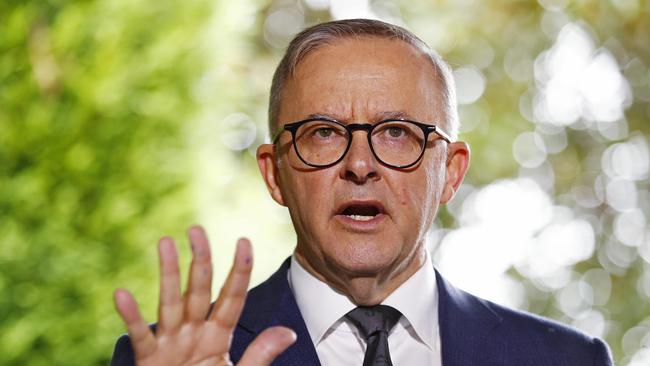
The Fair Work Act states the FWC must establish and maintain a safety net of fair minimum wages. The principal criteria are “the performance of the national economy, including productivity, business competitiveness and viability, inflation and employment growth.”
For many years, it has been customary for the federal government of the day to make a submission to the annual case but refrain from specifying a preferred figure (or figures). In this way, the FWC can be seen neither to be doing the bidding of the government nor be rejecting its recommendations.
The intervention this week of the leader of the opposition, Anthony Albanese, in the current wage case – the decision is not due to be released until the end of June – is not helpful. At the very least, it underscores his lack of appreciation of good governance. After all, he may well be heading up the government after May 21.
His support for a specific figure – an increase of 5.1 per cent in line with the March quarter CPI rise – is particularly unwise. The CPI is not a good measure of the cost of living for individuals or households.
The Australia Bureau of Statistics helpfully puts out cost-of-living indices for particular groups in the population. The most recent annual increase for employees was 3.8 per cent in the March quarter. Should Albo have opted for that figure?
The Leader of the Opposition also doesn’t seem to fully understand our current wage fixing systems. He stated this week that “we do not have centralised wage fixation in this country, what we have is a series of wage cases, including the minimum wage case, which is underway at the moment.” Actually, we don’t have a series of wage cases and the adjustment to the National Minimum Wage flows through to all awards, and includes adjustments to penalty rates, overtime rates and the like. Around one quarter of workers are award-reliant and many enterprise agreements reference the NMW.

There is also the point that the superannuation guarantee charge is due to increase by 0.5 percentage points from July 1. It has been the practice of the FWC to discount the increase to the NMW by this amount in recognition of the additional impose on employers.
The fact that wages have been growing slowly in recent years is something that Australia shares with many other developed economies. The trend reflects very low productivity growth. Labor’s trifling productivity agenda will do little raise productivity, at least in the near term.
The danger with Albo’s intervention is that a wage-price spiral is set off in which wage increases drive higher prices which drive further wage increases. In this case, the Reserve Bank will have no choice but to hike interest rates faster and higher. Rising unemployment would be just around the corner.







One of the advantages of having the Fair Work Commission set the National Minimum Wage (and the aligned award wage rates) is its independence from the political process. The commission can consider the various public submissions, conduct public hearings and weigh the evidence to reach a conclusion based on the criteria laid down in the law.